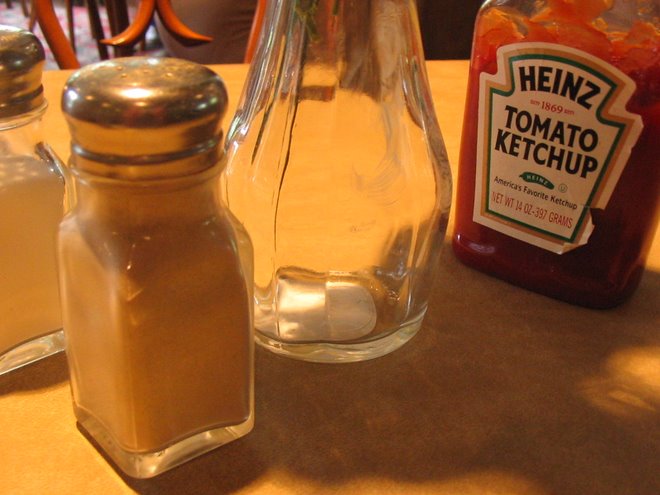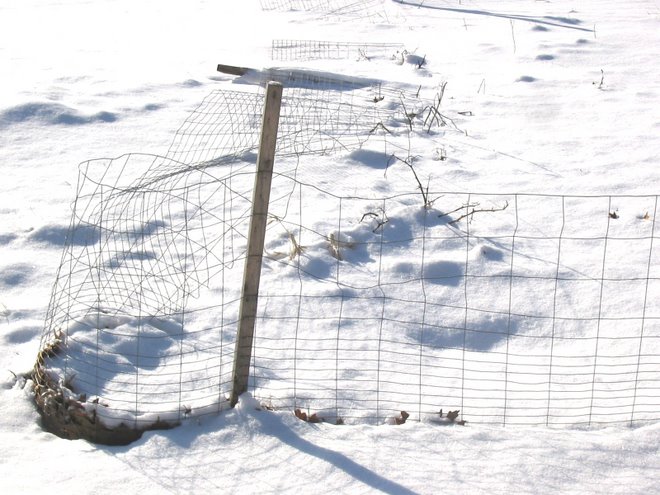Matthew, Chapter 5, Verse 3;
μακαριοι οι πτωχοι τω πνευματι οτι αυτων εστιν η βασιλεια των ουρανων
1894, Scrivener Textus Receptus
Courtesy of, http://www.e-sword.net
http://www.e-sword.net/downloads.html
http://www.e-sword.net/bibles.html
© 2006, God’s, Christ’s and our’ Holy Spirit’s, as attributed by, Mark Robert Gates
Matthew 5:3; Well off, one: pauper, one: spirit in selve’s, are, one: realm, and, one: elevation as heaven.
Translated by, Mark Robert Gates
Friday, December 15, 2006
PLENARIAL DISEASE, PRESCRIBED TORTURES
© 2006 Mark Robert Gates
Plenarial Disease: Giving false instructions in a planned demonstration of supposed mental superiority.
Sociallairistic intercourse treatment: Arrange a side-by-side demonstration, in a public area, of the plenarian’s diseased, result, and your own vastly superior, reality based results.
Planarity
This article is being considered for deletion in accordance with Wikipedia's deletion policy.
Please share your thoughts on the matter at this article's entry on the Articles for deletion page.
Feel free to edit the article, but the article must not be blanked, and this notice must not be removed, until the discussion is closed. For more information, particularly on merging or moving the article during the discussion, read the guide to deletion.
Steps to list an article for deletion: {{subst:afd}} • Preloaded debate OR {{subst:afd2pg=Planaritycat=text=}} • {{subst:afd3pg=Planarity}} log
This article is about the game; for the graph theory property, see Planar graph.
Planarity is the name of a puzzle computer game based on a concept by Mary Radcliffe at Western Michigan University.[1]
The name comes from the term planar graph. In graph theory, a planar graph is a graph that can be embedded in a plane so that no edges intersect. In the game, the player starts out with a tangled series of connected dots, and has to untangle the web until no edges intersect.
The original implementation of this game was a flash game developed by John Tantalo at Case Western Reserve University.[1] It in turn has inspired the creation of a [[GTK+]] version by Xiph.org's Chris Montgomery, which possesses additional level generation algorithms and the ability to manipulate multiple nodes at once.[2]
References
^ a b Planarity FAQ.
^ gPlanarity home.
External links
Planarity.net — the original flash game
gPlanarity — an improved [[GTK+]] version
Plenarial Disease: Giving false instructions in a planned demonstration of supposed mental superiority.
Sociallairistic intercourse treatment: Arrange a side-by-side demonstration, in a public area, of the plenarian’s diseased, result, and your own vastly superior, reality based results.
Planarity
This article is being considered for deletion in accordance with Wikipedia's deletion policy.
Please share your thoughts on the matter at this article's entry on the Articles for deletion page.
Feel free to edit the article, but the article must not be blanked, and this notice must not be removed, until the discussion is closed. For more information, particularly on merging or moving the article during the discussion, read the guide to deletion.
Steps to list an article for deletion: {{subst:afd}} • Preloaded debate OR {{subst:afd2pg=Planaritycat=text=}} • {{subst:afd3pg=Planarity}} log
This article is about the game; for the graph theory property, see Planar graph.
Planarity is the name of a puzzle computer game based on a concept by Mary Radcliffe at Western Michigan University.[1]
The name comes from the term planar graph. In graph theory, a planar graph is a graph that can be embedded in a plane so that no edges intersect. In the game, the player starts out with a tangled series of connected dots, and has to untangle the web until no edges intersect.
The original implementation of this game was a flash game developed by John Tantalo at Case Western Reserve University.[1] It in turn has inspired the creation of a [[GTK+]] version by Xiph.org's Chris Montgomery, which possesses additional level generation algorithms and the ability to manipulate multiple nodes at once.[2]
References
^ a b Planarity FAQ.
^ gPlanarity home.
External links
Planarity.net — the original flash game
gPlanarity — an improved [[GTK+]] version
Wednesday, December 13, 2006
HYMN TO INTELLECTUAL BEAUTY
by Percy Bysshe Shelley
The awful shadow of some unseen Power
Floats though unseen among us, -- visiting
This various world with as inconstant wing
As summer winds that creep from flower to flower, --
Like moonbeams that behind some piny mountain shower,
It visits with inconstant glance
Each human heart and countenance;
Like hues and harmonies of evening, --
Like clouds in starlight widely spread, --
Like memory of music fled,
--Like aught that for its grace may be
Dear, and yet dearer for its mystery.
Spirit of Beauty, that dost consecrate
With thine own hues all thou dost shine upon
Of human thought or form, -- where art thou gone?
Why dost thou pass away and leave our state,
This dim vast vale of tears, vacant and desolate?
Ask why the sunlight not for ever
Weaves rainbows o'er yon mountain-river,
Why aught should fail and fade that once is shown,
Why fear and dream and death and birth
Cast on the daylight of this earth
Such gloom, -- why man has such a scope
For love and hate, despondency and hope?
No voice from some sublimer world hath ever
To sage or poet these responses given --
Therefore the names of Demon, Ghost, and Heaven,
Remain the records of their vain endeavour,
Frail spells -- whose uttered charm might not avail to sever,
From all we hear and all we see,
Doubt, chance, and mutability.
Thy light alone -- like mist oe'er the mountains driven,
Or music by the night-wind sent
Through strings of some still instrument,
Or moonlight on a midnight stream,
Gives grace and truth to life's unquiet dream.
Love, Hope, and Self-esteem, like clouds depart
And come, for some uncertain moments lent.
Man were immortal, and omnipotent,
Didst thou, unknown and awful as thou art,
Keep with thy glorious train firm state within his heart.
Thou messgenger of sympathies,
That wax and wane in lovers' eyes --
Thou -- that to human thought art nourishment,
Like darkness to a dying flame!
Depart not as thy shadow came,
Depart not -- lest the grave should be,
Like life and fear, a dark reality.
While yet a boy I sought for ghosts, and sped
Through many a listening chamber, cave and ruin,
And starlight wood, with fearful steps pursuing
Hopes of high talk with the departed dead.
I called on poisonous names with which our youth is fed;
I was not heard -- I saw them not --When musing deeply on the lot
Of life, at that sweet time when winds are wooing
All vital things that wake to bring
News of birds and blossoming, --
Sudden, thy shadow fell on me;
I shrieked, and clasped my hands in ecstasy!
I vowed that I would dedicate my powers
To thee and thine -- have I not kept the vow?
With beating heart and streaming eyes, even now
I call the phantoms of a thousand hours
Each from his voiceless grave: they have in visioned bowers
Of studious zeal or love's delight
Outwatched with me the envious night --
They know that never joy illumed my brow
Unlinked with hope that thou wouldst free
This world from its dark slavery,
That thou - O awful Loveliness,
Wouldst give whate'er these words cannot express.
The day becomes more solemn and serene
When noon is past -- there is a harmony
In autumn, and a lustre in its sky,
Which through the summer is not heard or seen,
As if it could not be, as if it had not been!
Thus let thy power, which like the truth
Of nature on my passive youth
Descended, to my onward life supply
Its calm -- to one who worships thee,
And every form containing thee,
Whom, Spirit fair, thy spells did bind
To fear himself, and love all human kind.
This work is in the public domain worldwide because the author died at least 100 years ago.
The awful shadow of some unseen Power
Floats though unseen among us, -- visiting
This various world with as inconstant wing
As summer winds that creep from flower to flower, --
Like moonbeams that behind some piny mountain shower,
It visits with inconstant glance
Each human heart and countenance;
Like hues and harmonies of evening, --
Like clouds in starlight widely spread, --
Like memory of music fled,
--Like aught that for its grace may be
Dear, and yet dearer for its mystery.
Spirit of Beauty, that dost consecrate
With thine own hues all thou dost shine upon
Of human thought or form, -- where art thou gone?
Why dost thou pass away and leave our state,
This dim vast vale of tears, vacant and desolate?
Ask why the sunlight not for ever
Weaves rainbows o'er yon mountain-river,
Why aught should fail and fade that once is shown,
Why fear and dream and death and birth
Cast on the daylight of this earth
Such gloom, -- why man has such a scope
For love and hate, despondency and hope?
No voice from some sublimer world hath ever
To sage or poet these responses given --
Therefore the names of Demon, Ghost, and Heaven,
Remain the records of their vain endeavour,
Frail spells -- whose uttered charm might not avail to sever,
From all we hear and all we see,
Doubt, chance, and mutability.
Thy light alone -- like mist oe'er the mountains driven,
Or music by the night-wind sent
Through strings of some still instrument,
Or moonlight on a midnight stream,
Gives grace and truth to life's unquiet dream.
Love, Hope, and Self-esteem, like clouds depart
And come, for some uncertain moments lent.
Man were immortal, and omnipotent,
Didst thou, unknown and awful as thou art,
Keep with thy glorious train firm state within his heart.
Thou messgenger of sympathies,
That wax and wane in lovers' eyes --
Thou -- that to human thought art nourishment,
Like darkness to a dying flame!
Depart not as thy shadow came,
Depart not -- lest the grave should be,
Like life and fear, a dark reality.
While yet a boy I sought for ghosts, and sped
Through many a listening chamber, cave and ruin,
And starlight wood, with fearful steps pursuing
Hopes of high talk with the departed dead.
I called on poisonous names with which our youth is fed;
I was not heard -- I saw them not --When musing deeply on the lot
Of life, at that sweet time when winds are wooing
All vital things that wake to bring
News of birds and blossoming, --
Sudden, thy shadow fell on me;
I shrieked, and clasped my hands in ecstasy!
I vowed that I would dedicate my powers
To thee and thine -- have I not kept the vow?
With beating heart and streaming eyes, even now
I call the phantoms of a thousand hours
Each from his voiceless grave: they have in visioned bowers
Of studious zeal or love's delight
Outwatched with me the envious night --
They know that never joy illumed my brow
Unlinked with hope that thou wouldst free
This world from its dark slavery,
That thou - O awful Loveliness,
Wouldst give whate'er these words cannot express.
The day becomes more solemn and serene
When noon is past -- there is a harmony
In autumn, and a lustre in its sky,
Which through the summer is not heard or seen,
As if it could not be, as if it had not been!
Thus let thy power, which like the truth
Of nature on my passive youth
Descended, to my onward life supply
Its calm -- to one who worships thee,
And every form containing thee,
Whom, Spirit fair, thy spells did bind
To fear himself, and love all human kind.
This work is in the public domain worldwide because the author died at least 100 years ago.
PARADIGMS OF ISSUE
© 2006 Mark Robert Gates
In America we are fighting two paradigms, of which we have to see an end, or find a way to prevent those of whom hold these paradigms from being a danger, threat, or harm to us.
Paradigm 1: When I am breaking the law, it is no longer illegal to do so. These people believe once they have decided to break the law, it is no longer illegal to do so, due to their rationalizations, and there is no place to place a stop sign in the road, once a person with this paradigm chooses to break American laws. These people now believe what they are doing is legal, and enforcing the law to stop them, is illegal.
A way has to be found, now that we can prove this paradigm to exist, to either end this paradigm in a person, or see that a person with this paradigm is no longer a danger, threat, or capable of causing us harm.
Paradigm: The God is an idiot paradigm: There are people who would lie to God, Christ and the Holy Spirit, and all of society on an open microphone, and then believe, I am an idiot. These people believe in a god of which created all of these lovely people on this planet to be their victims and this loving god aides them in victimizing their victims. Why? These people not only believe God is an idiot, they believe anyone who believes in a loving God, and believes they are being nurtured by this loving God, are also, idiots. And, these people try to enforce a clause, of which states: God is an idiot; this beliver is an idiot. Yes, these people want all people who belive and follow God's of our' Bible's tagged: idiots. Yes. God created the earth and all of these people in it, in order that they may have them as victims, is what these people believe, and if God does not aide them in having these victims, God is not loving. And, will fight to the last man to enforce this rule.
A way has to be found, now that this paradigm of religious persecution can be proved to exist, to prove, once and for all, American law prevents and protects its citizens from such religious torture's. And, use exsiting law, to either end this paradigm in a person, or to enforce all parts of American law, and prevent and protect Americans from this, God is an idiot paradigm, from being a danger, threat, or capable of causing us harm.
There is no need to limit freedom's of speech and press, all we have to do as American's is enforce those laws already existing of which state: Freedom's of speech, press, religion, and our right to a fair trial, do not exist to protect lies.
In America we are fighting two paradigms, of which we have to see an end, or find a way to prevent those of whom hold these paradigms from being a danger, threat, or harm to us.
Paradigm 1: When I am breaking the law, it is no longer illegal to do so. These people believe once they have decided to break the law, it is no longer illegal to do so, due to their rationalizations, and there is no place to place a stop sign in the road, once a person with this paradigm chooses to break American laws. These people now believe what they are doing is legal, and enforcing the law to stop them, is illegal.
A way has to be found, now that we can prove this paradigm to exist, to either end this paradigm in a person, or see that a person with this paradigm is no longer a danger, threat, or capable of causing us harm.
Paradigm: The God is an idiot paradigm: There are people who would lie to God, Christ and the Holy Spirit, and all of society on an open microphone, and then believe, I am an idiot. These people believe in a god of which created all of these lovely people on this planet to be their victims and this loving god aides them in victimizing their victims. Why? These people not only believe God is an idiot, they believe anyone who believes in a loving God, and believes they are being nurtured by this loving God, are also, idiots. And, these people try to enforce a clause, of which states: God is an idiot; this beliver is an idiot. Yes, these people want all people who belive and follow God's of our' Bible's tagged: idiots. Yes. God created the earth and all of these people in it, in order that they may have them as victims, is what these people believe, and if God does not aide them in having these victims, God is not loving. And, will fight to the last man to enforce this rule.
A way has to be found, now that this paradigm of religious persecution can be proved to exist, to prove, once and for all, American law prevents and protects its citizens from such religious torture's. And, use exsiting law, to either end this paradigm in a person, or to enforce all parts of American law, and prevent and protect Americans from this, God is an idiot paradigm, from being a danger, threat, or capable of causing us harm.
There is no need to limit freedom's of speech and press, all we have to do as American's is enforce those laws already existing of which state: Freedom's of speech, press, religion, and our right to a fair trial, do not exist to protect lies.
Tuesday, December 12, 2006
DEMOCRITTUS JUNIOR TO HIS BOOK, from Project Gutenberg's The Anatomy of Melancholy, by Democritus Junior
PARAPHRASTIC METRICAL TRANSLATION. (1621)
Go forth my book into the open day;
Happy, if made so by its garish eye.
O'er earth's wide surface take thy vagrant way,
To imitate thy master's genius try.
The Graces three, the Muses nine salute,
Should those who love them try to con thy lore.
The country, city seek, grand thrones to boot,
With gentle courtesy humbly bow before.
Should nobles gallant, soldiers frank and brave
Seek thy acquaintance, hail their first advance:
From twitch of care thy pleasant vein may save,
May laughter cause or wisdom give perchance.
Some surly Cato, Senator austere,
Haply may wish to peep into thy book:
Seem very nothing--tremble and revere:
No forceful eagles, butterflies e'er look.
They love not thee: of them then little seek,
And wish for readers triflers like thyself.
Of ludeful matron watchful catch the beck,
Or gorgeous countess full of pride and pelf.
They may say "pish!" and frown, and yet read on:
Cry odd, and silly, coarse, and yet amusing.
Should dainty damsels seek thy page to con,
Spread thy best stores: to them be ne'er refusing:
Say, fair one, master loves thee dear as life;
Would he were here to gaze on thy sweet look.
Should known or unknown student, freed from strife
Of logic and the schools, explore my book:
Cry mercy critic, and thy book withhold:
Be some few errors pardon'd though observ'd:
An humble author to implore makes bold.
Thy kind indulgence, even undeserv'd,
Should melancholy wight or pensive lover,
Courtier, snug cit, or carpet knight so trim
Our blossoms cull, he'll find himself in clover,
Gain sense from precept, laughter from our whim.
Should learned leech with solemn air unfold
Thy leaves, beware, be civil, and be wise:
Thy volume many precepts sage may hold,
His well fraught head may find no trifling prize.
Should crafty lawyer trespass on our ground,
Caitiffs avaunt! disturbing tribe away!
Unless (white crow) an honest one be found;
He'll better, wiser go for what we say.
Should some ripe scholar, gentle and benign,
With candour, care, and judgment thee peruse:
Thy faults to kind oblivion he'll consign;
Nor to thy merit will his praise refuse.
Thou may'st be searched for polish'd words and verse
By flippant spouter, emptiest of praters:
Tell him to seek them in some mawkish verse:
My periods all are rough as nutmeg graters.
The doggerel poet, wishing thee to read,
Reject not; let him glean thy jests and stories.
His brother I, of lowly sembling breed:
Apollo grants to few Parnassian glories.
Menac'd by critic with sour furrowed brow,
Momus or Troilus or Scotch reviewer:
Ruffle your heckle, grin and growl and vow:
Ill-natured foes you thus will find the fewer,
When foul-mouth'd senseless railers cry thee down,
Reply not: fly, and show the rogues thy stern;
hey are not worthy even of a frown:
Good taste or breeding they can never learn;
Or let them clamour, turn a callous ear,
As though in dread of some harsh donkey's bray.
If chid by censor, friendly though severe,
To such explain and turn thee not away.
Thy vein, says he perchance, is all too free;
Thy smutty language suits not learned pen:
Reply, Good Sir, throughout, the context see;
Thought chastens thought; so prithee judge again.
Besides, although my master's pen may wander
Through devious paths, by which it ought not stray,
His life is pure, beyond the breath of slander:
So pardon grant; 'tis merely but his way.
Some rugged ruffian makes a hideous rout--
Brandish thy cudgel, threaten him to baste;
The filthy fungus far from thee cast out;
Such noxious banquets never suit my taste.
Yet, calm and cautious moderate thy ire,
Be ever courteous should the case allow--
Sweet malt is ever made by gentle fire:
Warm to thy friends, give all a civil bow.
Even censure sometimes teaches to improve,
Slight frosts have often cured too rank a crop,
So, candid blame my spleen shall never move,
For skilful gard'ners wayward branches lop.
Go then, my book, and bear my words in mind;
Guides safe at once, and pleasant them you'll find.
THE ARGUMENT OF THE FRONTISPIECE.
Ten distinct Squares here seen apart,
Are joined in one by Cutter's art.
I.
Old Democritus under a tree,
Sits on a stone with book on knee;
About him hang there many features,
Of Cats, Dogs and such like creatures,
Of which he makes anatomy,
The seat of black choler to see.
Over his head appears the sky,
And Saturn Lord of melancholy.
II.
To the left a landscape of Jealousy,
Presents itself unto thine eye.
A Kingfisher, a Swan, an Hern,
Two fighting-cocks you may discern,
Two roaring Bulls each other hie,
To assault concerning venery.
Symbols are these; I say no more,
Conceive the rest by that's afore.
III.
The next of solitariness,
A portraiture doth well express,
By sleeping dog, cat: Buck and Doe,
Hares, Conies in the desert go:
Bats, Owls the shady bowers over,
In melancholy darkness hover.
Mark well: If't be not as't should be,
Blame the bad Cutter, and not me.
IV.
I'th' under column there doth stand
_Inamorato_ with folded hand;
Down hangs his head, terse and polite,
Some ditty sure he doth indite.
His lute and books about him lie,
As symptoms of his vanity.
If this do not enough disclose,
To paint him, take thyself by th' nose.
V.
_Hypocondriacus_ leans on his arm,
Wind in his side doth him much harm,
And troubles him full sore, God knows,
Much pain he hath and many woes.
About him pots and glasses lie,
Newly brought from's Apothecary.
This Saturn's aspects signify,
You see them portray'd in the sky.
VI.
Beneath them kneeling on his knee,
A superstitious man you see:
He fasts, prays, on his Idol fixt,
Tormented hope and fear betwixt:
For Hell perhaps he takes more pain,
Than thou dost Heaven itself to gain.
Alas poor soul, I pity thee,
What stars incline thee so to be?
VII. But see the madman rage downright
With furious looks, a ghastly sight.
Naked in chains bound doth he lie,
And roars amain he knows not why!
Observe him; for as in a glass,
Thine angry portraiture it was.
His picture keeps still in thy presence;
'Twixt him and thee, there's no difference.
VIII, IX.
_Borage_ and _Hellebor_ fill two scenes,
Sovereign plants to purge the veins
Of melancholy, and cheer the heart,
Of those black fumes which make it smart;
To clear the brain of misty fogs,
Which dull our senses, and Soul clogs.
The best medicine that e'er God made
For this malady, if well assay'd.
X.
Now last of all to fill a place,
Presented is the Author's face;
And in that habit which he wears,
His image to the world appears.
His mind no art can well express,
That by his writings you may guess.
It was not pride, nor yet vainglory,
(Though others do it commonly)
Made him do this: if you must know,
The Printer would needs have it so.
Then do not frown or scoff at it,
Deride not, or detract a whit.
For surely as thou dost by him,
He will do the same again.
Then look upon't, behold and see,
As thou lik'st it, so it likes thee.
And I for it will stand in view,
Thine to command, Reader, adieu.
Courtesy of Project Gutenberg
http://www.gutenberg.org/catalog/world/readfile?fk_files=45516
Go forth my book into the open day;
Happy, if made so by its garish eye.
O'er earth's wide surface take thy vagrant way,
To imitate thy master's genius try.
The Graces three, the Muses nine salute,
Should those who love them try to con thy lore.
The country, city seek, grand thrones to boot,
With gentle courtesy humbly bow before.
Should nobles gallant, soldiers frank and brave
Seek thy acquaintance, hail their first advance:
From twitch of care thy pleasant vein may save,
May laughter cause or wisdom give perchance.
Some surly Cato, Senator austere,
Haply may wish to peep into thy book:
Seem very nothing--tremble and revere:
No forceful eagles, butterflies e'er look.
They love not thee: of them then little seek,
And wish for readers triflers like thyself.
Of ludeful matron watchful catch the beck,
Or gorgeous countess full of pride and pelf.
They may say "pish!" and frown, and yet read on:
Cry odd, and silly, coarse, and yet amusing.
Should dainty damsels seek thy page to con,
Spread thy best stores: to them be ne'er refusing:
Say, fair one, master loves thee dear as life;
Would he were here to gaze on thy sweet look.
Should known or unknown student, freed from strife
Of logic and the schools, explore my book:
Cry mercy critic, and thy book withhold:
Be some few errors pardon'd though observ'd:
An humble author to implore makes bold.
Thy kind indulgence, even undeserv'd,
Should melancholy wight or pensive lover,
Courtier, snug cit, or carpet knight so trim
Our blossoms cull, he'll find himself in clover,
Gain sense from precept, laughter from our whim.
Should learned leech with solemn air unfold
Thy leaves, beware, be civil, and be wise:
Thy volume many precepts sage may hold,
His well fraught head may find no trifling prize.
Should crafty lawyer trespass on our ground,
Caitiffs avaunt! disturbing tribe away!
Unless (white crow) an honest one be found;
He'll better, wiser go for what we say.
Should some ripe scholar, gentle and benign,
With candour, care, and judgment thee peruse:
Thy faults to kind oblivion he'll consign;
Nor to thy merit will his praise refuse.
Thou may'st be searched for polish'd words and verse
By flippant spouter, emptiest of praters:
Tell him to seek them in some mawkish verse:
My periods all are rough as nutmeg graters.
The doggerel poet, wishing thee to read,
Reject not; let him glean thy jests and stories.
His brother I, of lowly sembling breed:
Apollo grants to few Parnassian glories.
Menac'd by critic with sour furrowed brow,
Momus or Troilus or Scotch reviewer:
Ruffle your heckle, grin and growl and vow:
Ill-natured foes you thus will find the fewer,
When foul-mouth'd senseless railers cry thee down,
Reply not: fly, and show the rogues thy stern;
hey are not worthy even of a frown:
Good taste or breeding they can never learn;
Or let them clamour, turn a callous ear,
As though in dread of some harsh donkey's bray.
If chid by censor, friendly though severe,
To such explain and turn thee not away.
Thy vein, says he perchance, is all too free;
Thy smutty language suits not learned pen:
Reply, Good Sir, throughout, the context see;
Thought chastens thought; so prithee judge again.
Besides, although my master's pen may wander
Through devious paths, by which it ought not stray,
His life is pure, beyond the breath of slander:
So pardon grant; 'tis merely but his way.
Some rugged ruffian makes a hideous rout--
Brandish thy cudgel, threaten him to baste;
The filthy fungus far from thee cast out;
Such noxious banquets never suit my taste.
Yet, calm and cautious moderate thy ire,
Be ever courteous should the case allow--
Sweet malt is ever made by gentle fire:
Warm to thy friends, give all a civil bow.
Even censure sometimes teaches to improve,
Slight frosts have often cured too rank a crop,
So, candid blame my spleen shall never move,
For skilful gard'ners wayward branches lop.
Go then, my book, and bear my words in mind;
Guides safe at once, and pleasant them you'll find.
THE ARGUMENT OF THE FRONTISPIECE.
Ten distinct Squares here seen apart,
Are joined in one by Cutter's art.
I.
Old Democritus under a tree,
Sits on a stone with book on knee;
About him hang there many features,
Of Cats, Dogs and such like creatures,
Of which he makes anatomy,
The seat of black choler to see.
Over his head appears the sky,
And Saturn Lord of melancholy.
II.
To the left a landscape of Jealousy,
Presents itself unto thine eye.
A Kingfisher, a Swan, an Hern,
Two fighting-cocks you may discern,
Two roaring Bulls each other hie,
To assault concerning venery.
Symbols are these; I say no more,
Conceive the rest by that's afore.
III.
The next of solitariness,
A portraiture doth well express,
By sleeping dog, cat: Buck and Doe,
Hares, Conies in the desert go:
Bats, Owls the shady bowers over,
In melancholy darkness hover.
Mark well: If't be not as't should be,
Blame the bad Cutter, and not me.
IV.
I'th' under column there doth stand
_Inamorato_ with folded hand;
Down hangs his head, terse and polite,
Some ditty sure he doth indite.
His lute and books about him lie,
As symptoms of his vanity.
If this do not enough disclose,
To paint him, take thyself by th' nose.
V.
_Hypocondriacus_ leans on his arm,
Wind in his side doth him much harm,
And troubles him full sore, God knows,
Much pain he hath and many woes.
About him pots and glasses lie,
Newly brought from's Apothecary.
This Saturn's aspects signify,
You see them portray'd in the sky.
VI.
Beneath them kneeling on his knee,
A superstitious man you see:
He fasts, prays, on his Idol fixt,
Tormented hope and fear betwixt:
For Hell perhaps he takes more pain,
Than thou dost Heaven itself to gain.
Alas poor soul, I pity thee,
What stars incline thee so to be?
VII. But see the madman rage downright
With furious looks, a ghastly sight.
Naked in chains bound doth he lie,
And roars amain he knows not why!
Observe him; for as in a glass,
Thine angry portraiture it was.
His picture keeps still in thy presence;
'Twixt him and thee, there's no difference.
VIII, IX.
_Borage_ and _Hellebor_ fill two scenes,
Sovereign plants to purge the veins
Of melancholy, and cheer the heart,
Of those black fumes which make it smart;
To clear the brain of misty fogs,
Which dull our senses, and Soul clogs.
The best medicine that e'er God made
For this malady, if well assay'd.
X.
Now last of all to fill a place,
Presented is the Author's face;
And in that habit which he wears,
His image to the world appears.
His mind no art can well express,
That by his writings you may guess.
It was not pride, nor yet vainglory,
(Though others do it commonly)
Made him do this: if you must know,
The Printer would needs have it so.
Then do not frown or scoff at it,
Deride not, or detract a whit.
For surely as thou dost by him,
He will do the same again.
Then look upon't, behold and see,
As thou lik'st it, so it likes thee.
And I for it will stand in view,
Thine to command, Reader, adieu.
Courtesy of Project Gutenberg
http://www.gutenberg.org/catalog/world/readfile?fk_files=45516
Monday, December 11, 2006
FROM MAMMAL TO MAMMON
© 2006 Mark Robert Gates
If mankind is supposed to evolve from one form to another, every millennium or so, we have not progressed far, we were mammals, living as Pagans, and since we have met God’s we are now the seed of mammon. And, still cannot serve any other master, except mammon, unless we meet a God’s on the road, one would think we would be born by now with Sunday school manners enough, to stick our heads out into the world and ask directions, to the baptismal.
If mankind is supposed to evolve from one form to another, every millennium or so, we have not progressed far, we were mammals, living as Pagans, and since we have met God’s we are now the seed of mammon. And, still cannot serve any other master, except mammon, unless we meet a God’s on the road, one would think we would be born by now with Sunday school manners enough, to stick our heads out into the world and ask directions, to the baptismal.
Subscribe to:
Comments (Atom)











